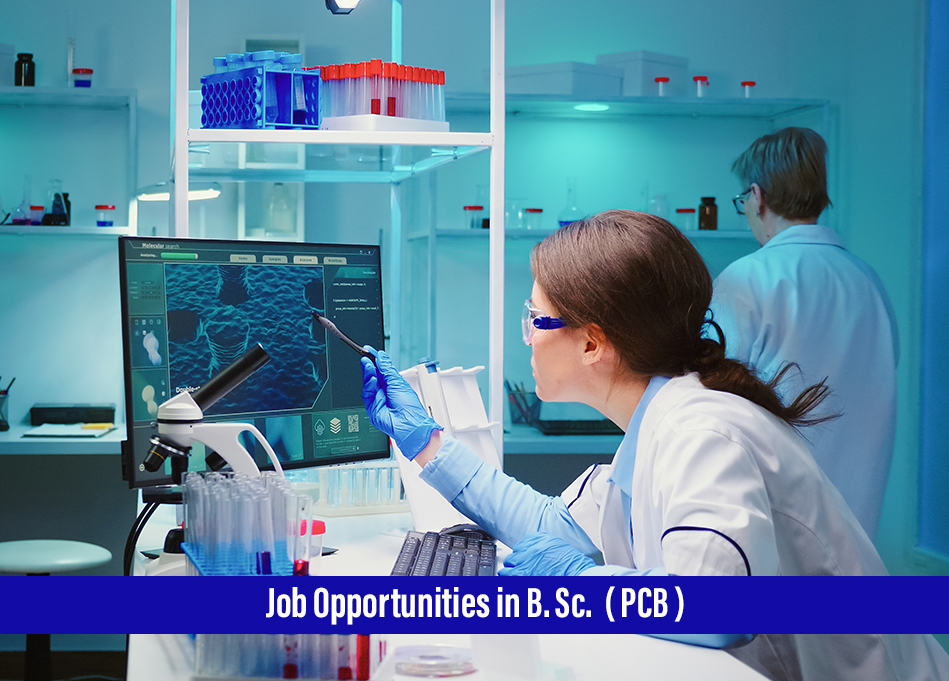A Bachelor of Science (B.Sc.) in PCB (Physics, Chemistry, and Biology) is an interdisciplinary undergraduate program that integrates the fundamental principles of physics, chemistry, and biology. This program provides students with a holistic understanding of the natural sciences, exploring the physical laws governing the universe, the properties and interactions of matter in chemistry, and the intricacies of living organisms in biology. Through a combination of theoretical knowledge and practical laboratory work, students gain a comprehensive foundation in these scientific disciplines. This interdisciplinary approach prepares graduates for a wide range of career paths, including healthcare, pharmaceuticals, biotechnology, research, and environmental science. It also serves as a stepping stone for those considering advanced studies or specialized careers in fields such as medicine, dentistry, or veterinary science, where a strong background in physics, chemistry, and biology is essential. The B.Sc. in PCB not only fosters analytical thinking and problem-solving skills but also provides a solid platform for individuals interested in making contributions to scientific advancements and societal well-being.
Candidates should have completed their higher secondary education (10+2 level) with 50% marks from a recognized board or educational institution. They should have studied physics, chemistry, and biology as mandatory subjects.
A B.Sc. in PCB (Physics, Chemistry, and Biology) opens up diverse career prospects in various scientific and healthcare fields. Graduates may pursue careers in medicine, dentistry, or veterinary science, utilizing their interdisciplinary knowledge in healthcare settings. Pharmaceutical and biotechnology industries offer opportunities for research and development, where understanding the principles of physics, chemistry, and biology is crucial for drug discovery and development. Environmental science and conservation organizations seek professionals with a background in PCB to address ecological challenges. Additionally, roles in clinical research, medical laboratory technology, and healthcare administration are accessible. The program provides a solid foundation for advanced studies, such as postgraduate degrees in specialized fields like genetics, biochemistry, or environmental sciences. Overall, the B.Sc. in PCB equips graduates with a versatile skill set, making them well-suited for impactful contributions in healthcare, research, and scientific advancements.
